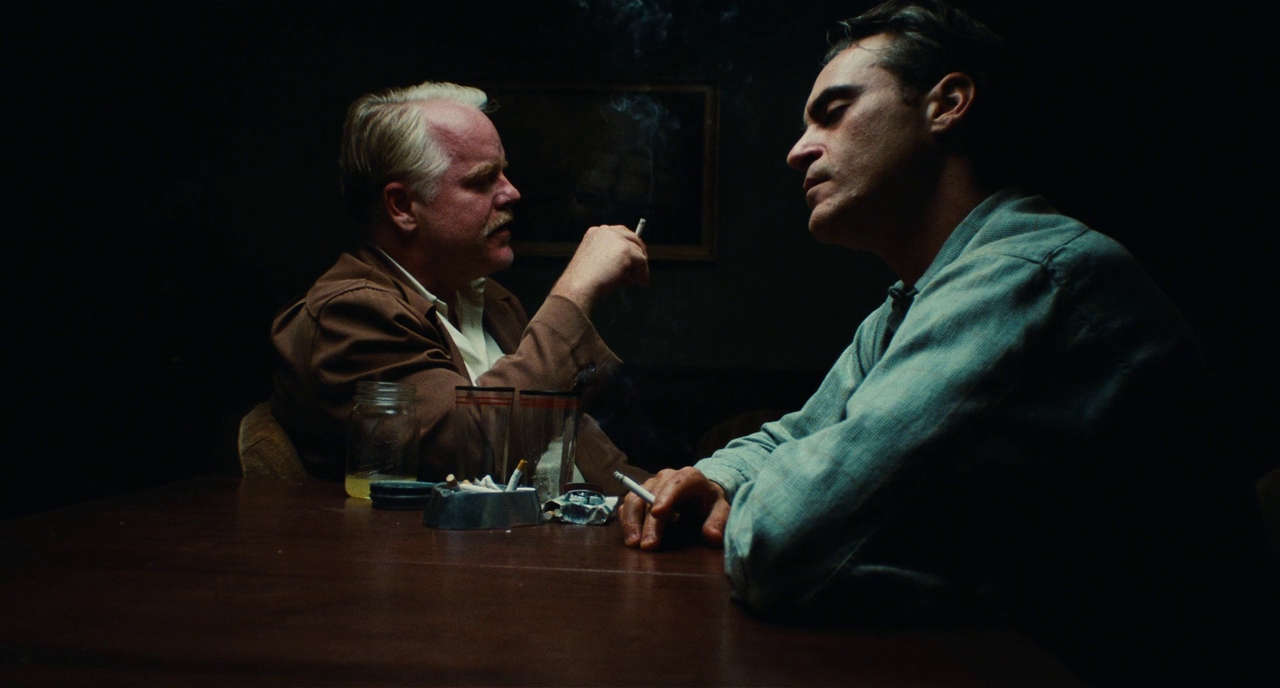
The Master refuses to elevate the audience above Freddie Quell. In the simplistic version of the film Joaquin Phoenix’s wastrel Freddie Quell would be The Sucker and Philip Seymour Hoffman’s Lancaster Dodd would be The Fraud and there would be little ambiguity about it. No doubt this version was what many expected when they bought a ticket for Paul Thomas Anderson’s kaleidoscopic spiritual and psychological odyssey. A dynamic that would allow for them to lean back and smugly cluck that they wouldn’t be so easily taken in by such madness.
What Anderson's fictionalized take on the founding of Scientology delivered was something altogether more twisted and obscure. At no point can we be entirely sure what any of the main characters truly believe...
Dodd and Quell are not so much predator and prey but two celestial objects caught in an irregular orbit around each other, alternately drawn in and repelled by the other’s gravity.
Certainly this is what the divisive film’s vocal detractors point to as proof of the film’s emptiness. To them Anderson is merely slapping a hypnotic Jonny Greenwood score on half-formed material in the hope that audiences will attribute deep meaning to its opacity. Jesse Plemons’ Val Dodd might as well be talking about the auteur himself when he wearily remarks of his father, "You know he’s just making this up as he goes along.”
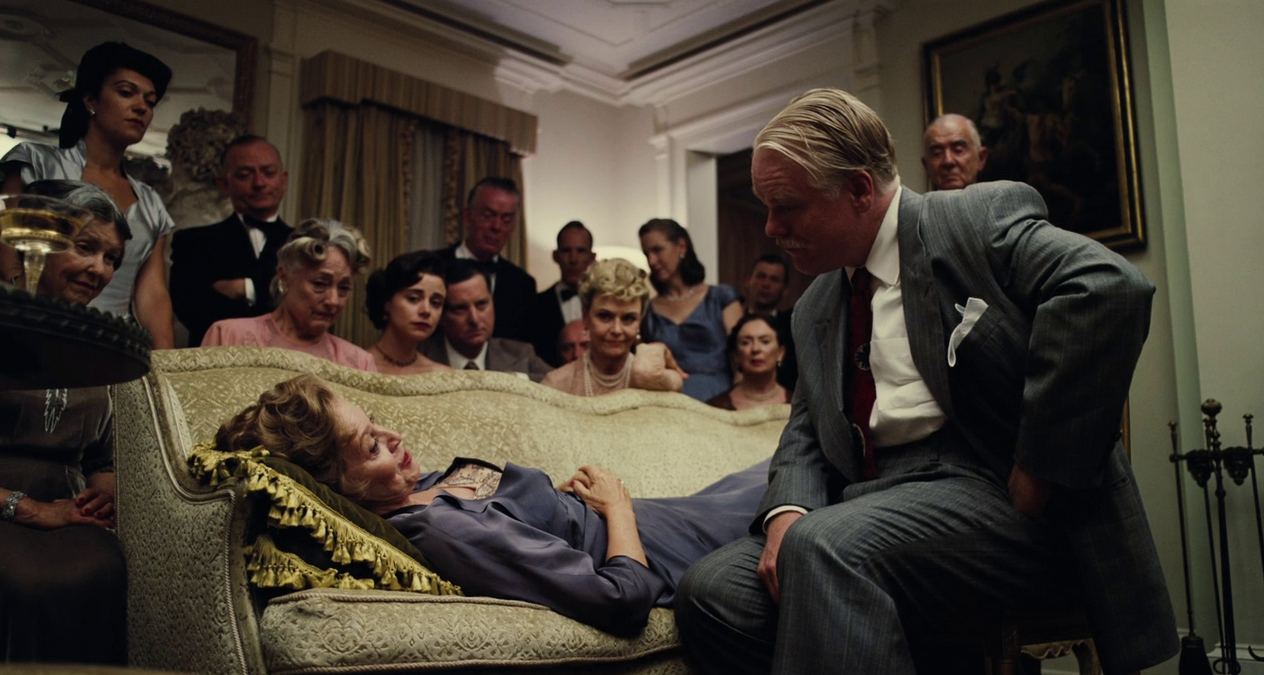
Personally, I believe PTA is a most un-Dodd-like figure in that The Master’s design stands up to and rewards scrutiny. For me, the distance between the audience and the characters is the key to its power and why it lingers in the mind long after the easily digestible version of the story would have dissipated. We’re right in there with Freddie trying to make sense of this world.
The scene that clinches it for me, the one that proves Anderson has total control over the material, arrives 52 minutes into the film.
Scene: Dodd is challenged or "The Ballad of Pig Fuck"
At this point in The Master we might have missed how thoroughly ensconced in a bubble the film has become. It's easy to focus on the positive aspects of Dodd’s leadership out at sea where he is never, ever challenged. It’s not that we’re ever taken in by Dodd. We may be impressed by the charisma with which he delivers his bullshit, but it is always, plainly, bullshit. What’s not so plain is to what degree he believes his own patter. If he knew it to be 100% snake oil could he deliver it with such fevered conviction? And so what about Dodd's bizarre metaphysical claims if his philosophy manages to quiet Freddie’s restless mind? Who but a genuine holy man could muster affection for a creature as wretched as Freddie? A messiah requires a disciple but it's a rare leader to see value in a Freddie Quell.
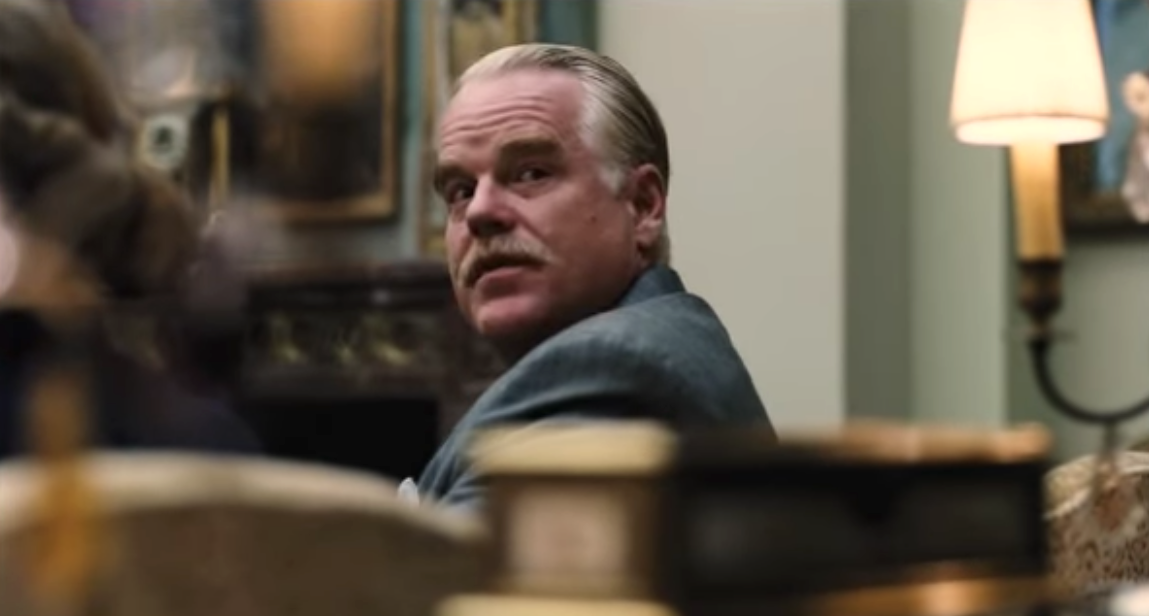
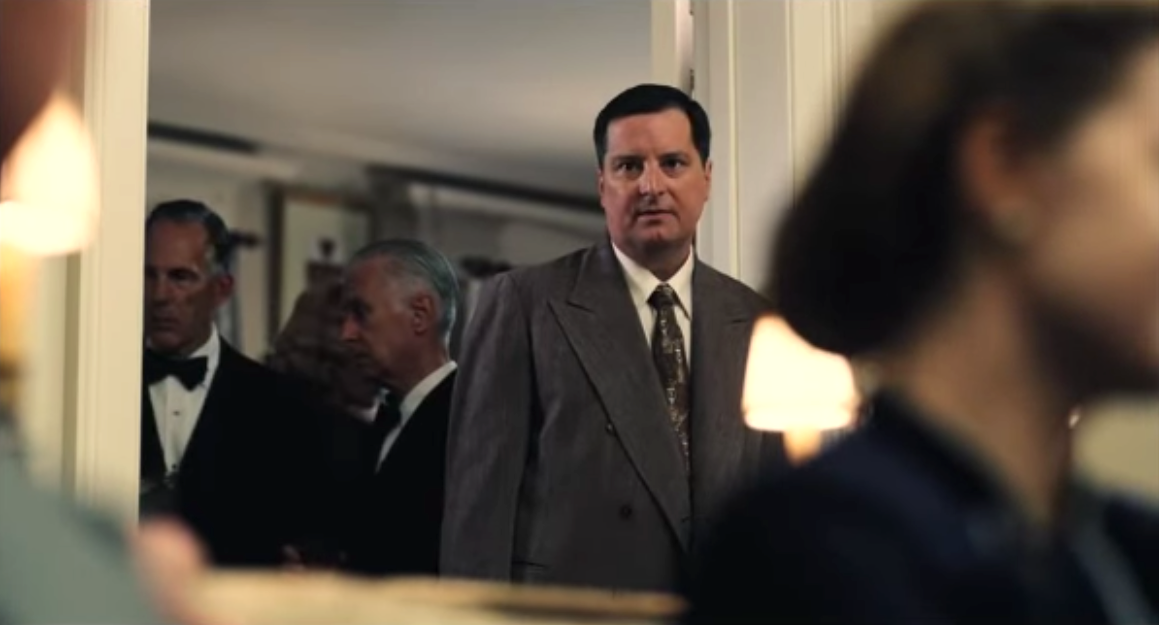
That bubble bursts in spectacular fashion back on land when John Moore (the late, great Christopher Evan Welch) enters the picture.
The film is approaching the halfway mark by the time a voice from the corner interrupts Dodd’s live "processing" demonstration and gives us everything the film has been withholding up to that point. Moore doesn’t merely scoff at Dodd’s preposterous hyperbole (he has apparently claimed his methods could cure leukemia) but shockingly he drops the word “Cult” a term we might have expected the film to tiptoe around, like the way The Godfather avoided “mafia”. After Dodd's bluster gets him nowhere his jovial mask slips revealing the petulant demagogue beneath and Hoffman gets to fire off one of the most glorious expletives in the annals of cinematic profanity.
With this quick taste of that low-hanging fruit, Anderson shows he could easily write the direct assault on Scientology many anticipated. But Anderson has no intention of making it so easy for us. The questions persist. To what degree does Dodd buy into his own scam? And what of that flash of murder in Amy Adams’ eyes. Is that the look of a ruthless con artist or the enraged zealot? Can both coexist? Whatever profiteering the Dodds engage in is kept offscreen.
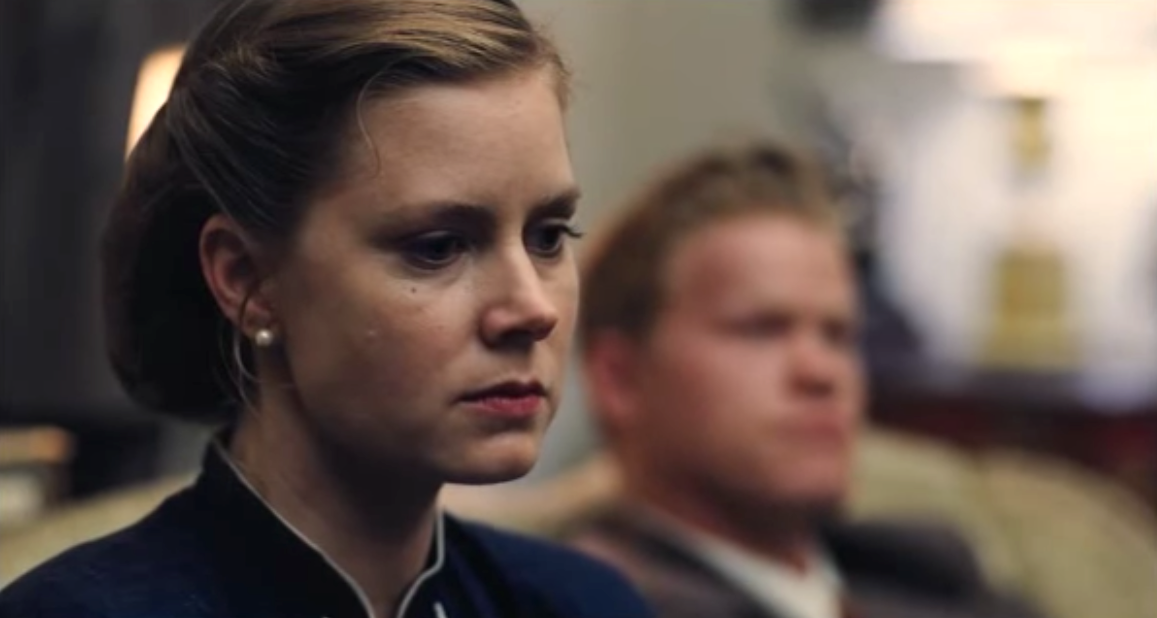
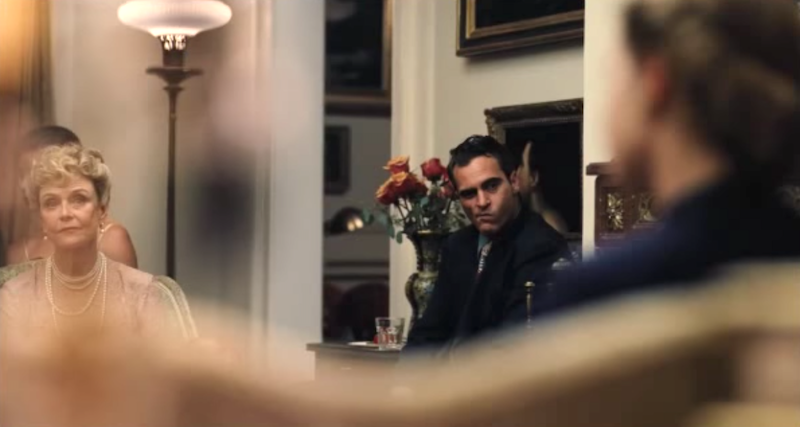
Most interesting during the confrontation scene is Freddie. It’s alarming for Freddie to see Dodd sink to his level of vulgarity because he needs Dodd to be the real deal. Yet prior to Moore’s interruption, Freddie couldn't have looked more bored with Dodd’s endless bloviating performance. When he reacts violently against Moore it’s because he’s reflecting Freddie’s own doubts back at him. Freddie might be feral but he’s not stupid.
Follow Michael on Twitter and Letterboxd. More episodes of The New Classics.